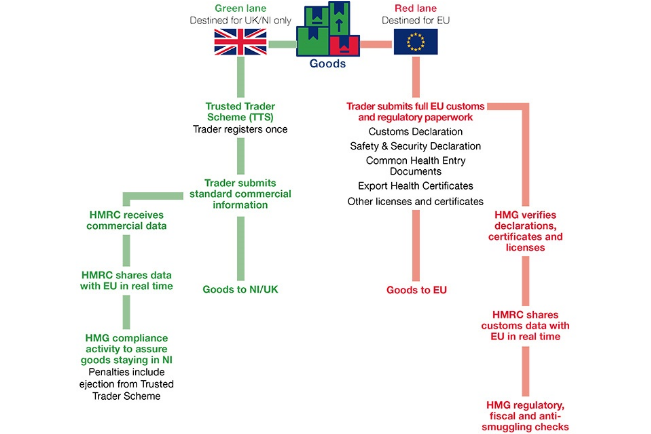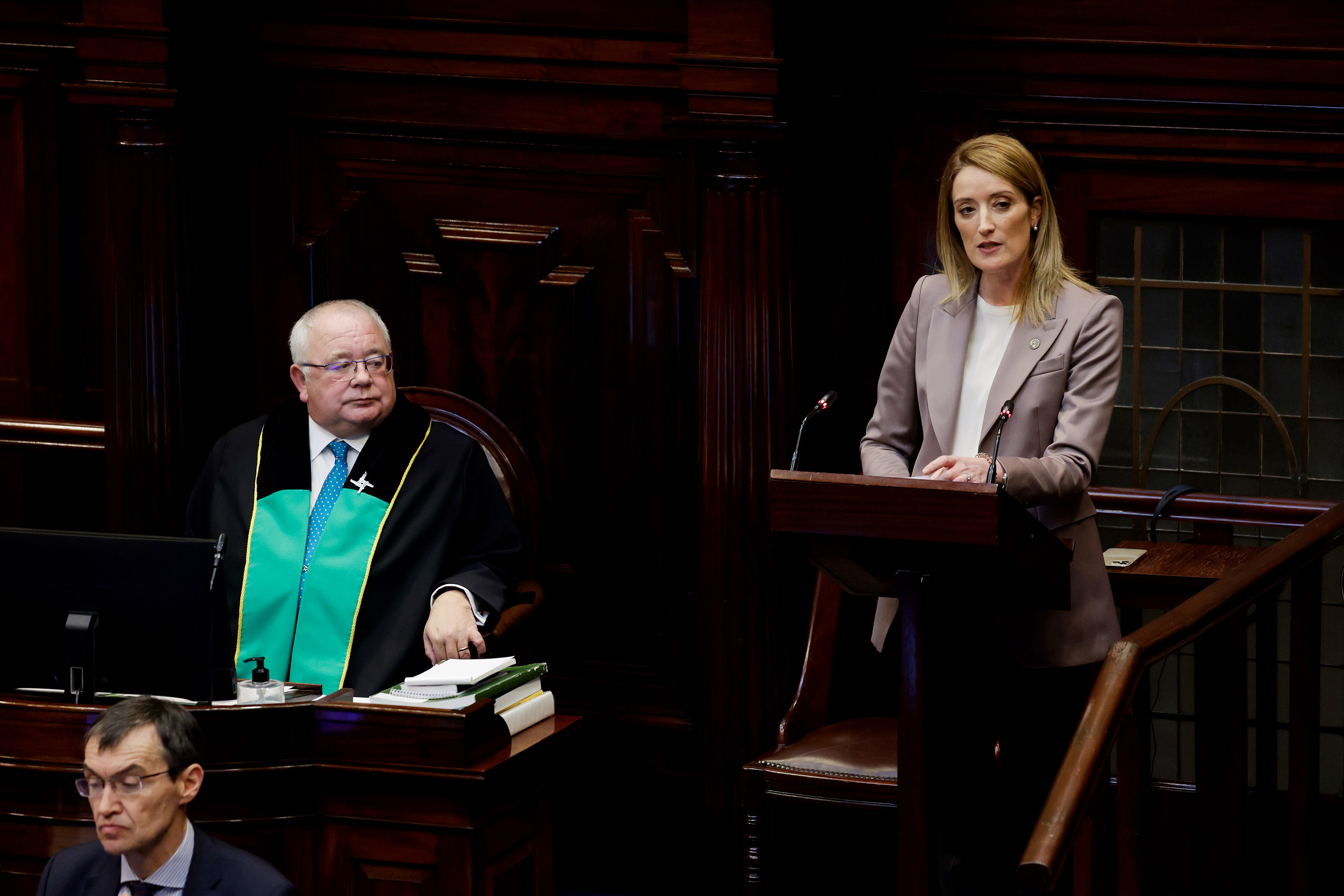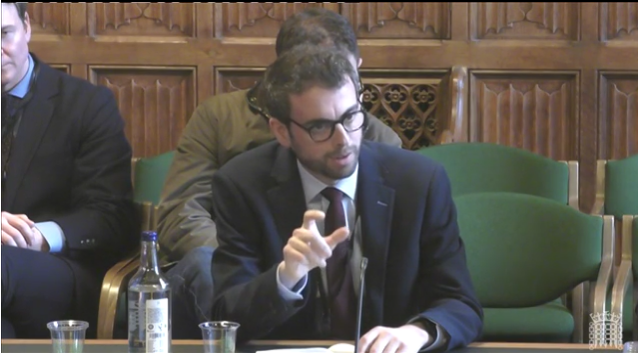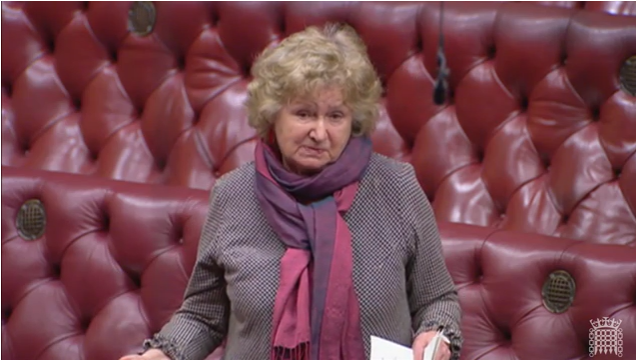Brexit & Beyond newsletter
6 February 2023
 Welcome to the 6 February 2023 Brexit & Beyond newsletter
Welcome to the 6 February 2023 Brexit & Beyond newsletter
There are reports of a deal between the EU and UK on the Protocol on Ireland/Northern Ireland. The Commons European Scrutiny Committee heard evidence on the ongoing Protocol negotiations. The House of Lords debated Common Frameworks, and trade in goods between the EU and GB. The Government’s Retained EU Law dashboard has been updated and now shows a total of 3,745 items of legislation.
A Protocol deal: Kite-flying or the endgame?
On Tuesday 31 January, the Times reported that the EU and UK have reached a customs deal (modelled on UK proposals for green and red channels), and that the EU had made concessions regarding the role of the European Court of Justice (that the ECJ could rule on issues related to NI only if a case was referred by the NI courts.) The reports were quickly refuted. The BBC Brussels correspondent tweeted that officials in Brussels dismissed claims about a compromise on the ECJ. One source described reports as “loose-lipped ‘kite-flying’ by someone in London”. The Irish Times reported sources downplaying progress in the talks as “unhelpful” and “premature”. Politico reported a senior UK Government official saying a deal was essentially done, “it's literally just lawyers tidying up bits of text.” The Prime Minister’s official spokesperson however said, “No deal has been agreed, there is still lots of work to do on all areas, with significant gaps remaining." Politico concludes, “Whisper it softly, but the Brexit endgame has arrived.”
RTÉ reported similar denials about EU concessions on customs and the ECJ on Wednesday, but this morning, Europe Editor Tony Connelly reports on a wider breakthrough: “The EU will accept the principle that GB goods shipped to Northern Ireland and staying there should be treated differently to goods moving south into the single market” and will agree to the red and green channels as proposed by the UK. The arrangements would apply to both SPS measures and customs. An announcement of a deal is, however, not expected this week. The UK’s legislation to ensure the construction of permanent border control posts at NI is “a key confidence-building measure”, according to EU sources. Additionally, the agreement on real-time data sharing on the movement of goods GB-NI, and a “good rapport” between EU and UK leaders have helped progress. Aspects of the deal are still under discussion; Connelly notes the “unprecedented secrecy” around the negotiations.
Today, European Commission Vice-President Maroš Šefčovič will update EU ministers on the talks at the General Affairs Council. The BBC reports there is expected to be little detail and little debate.

The UK’s proposed red and green lanes | Source: UK Government Policy paper, Northern Ireland Protocol: the UK’s solution (July 2022)
Expected opposition
Members of the Democratic Unionist Party and the European Research Group have signed an Early Day Motion calling on the Government to withdraw its legislation to facilitate the implementation of border control posts in Northern Ireland. They say the regulations “give effect to a customs border that divides the United Kingdom, treating Northern Ireland like a foreign country”. Bloomberg’s Joe Mayes points out that “there’s an organised group ready to hit back at any compromises as he [the Prime Minister] tries to find a landing zone with the EU in the protocol talks”. Very few Early Day Motions are debated. The Belfast Telegraph reports that a legal challenge has been brought against the Government’s legislation to facilitate the construction of border control posts.
Engagements
Tánaiste and Ireland’s Minister for Foreign Affairs Micheál Martin spoke with the UK Foreign Secretary on Thursday and “discussed continuing importance of finding agreed solutions in the ongoing EU-UK talks”.
On Thursday, European Parliament President Roberta Metsola travelled to Dublin to mark 50 years since Ireland joined the European Economic Community. On Brexit, she told a joint sitting of the Houses of the Oireachtas, “The European Union has not wavered in its solidarity with Ireland, and it is with civility and respect for the rule of law that the European Union and the United Kingdom will pursue their relationship. We will not leave your side.”

European Parliament President Roberta Metsola | Source: European Union 2023
On 3 February, Micheál Martin met local parties in Belfast. DUP leader Sir Jeffrey Donaldson said it was “a useful and constructive conversation.” After her meeting with the Tánaiste, Sinn Féin Vice-President Michelle O’Neill said, “There has been progress in the Protocol talks between the EU and British Government and that must continue in the spirit of cooperation to reach an agreement and give certainty to local businesses. “
Business and legal perspectives on the Protocol talks
On Wednesday, the Commons European Scrutiny Committee heard evidence on the ongoing Protocol talks. Stuart Anderson, Head of Public Affairs at the Northern Ireland Chamber of Commerce and Industry explained there are diverse views among businesses about the problems associated with the Protocol. Anderson said the UK’s proposed red and green lanes could be a solution for retailers, but it would problematic for intermediate goods (i.e. those subject to further manufacturing). Meanwhile, the EU version of this solution would require traders to continue to comply and declare that they comply with EU law. Fergus McReynolds, Director of EU and International Affairs at Make UK, said that the current arrangements (i.e. the grace periods) are the baseline for any solution. On an SPS agreement, Anderson said businesses operating in a riskier part of SPS regime would favour as close a relationship as possible. However, the retail sector doesn’t see it as a silver bullet.

Stuart Anderson, Head of Public Affairs at the Northern Ireland Chamber of Commerce and Industry | Source: UK Parliament
Anderson noted strong resistance to the concept of dual regulation from manufacturers, principally from the agri-food industry, as there is reputational risk and a possible breakdown of market access to the Republic of Ireland. He questioned how it would work from an administrative point of view and the implications regarding the Internal Market Act. McReynolds emphasised that “certainty of single legislative environments is very important” for businesses to guarantee access to as broad a market perspective as possible. On the proposed separate labelling for NI goods, witnesses both raised the issue of cost inefficiencies.
Anderson was critical of the history of the Protocol negotiations, saying there must be an improvement in the consultative nature of the process. The Foreign Secretary was asked to deepen his engagement with the NI business community on Tuesday 31 January by MP Stephen Farry (Alliance) “to better road-test emerging solutions”. Minister Cleverly said, “I met a group of them [NI businesses] during my trip to Northern Ireland at the beginning of the year, when they raised a series of specific concerns that they wanted to be addressed. We took careful note of those concerns…we have them at the forefront of our minds during our negotiations with the European Commission.”
Thomas Sharpe KC, Barrister, One Essex Court spoke on the legal aspects of the Protocol. He emphasised that to remove the role of the European Court of Justice, the supremacy of EU law in NI should be removed – this underpins its justification. He pointed to an “asymmetry” between the withdrawal arrangements, and said “eliminating [this] is eminently doable and sensible.” McReynolds emphasised that the manufacturing sector wouldn’t advocate for any action which leads to a significant trade dispute with the EU.
Retained EU Law
The UK Government’s Retained EU Law Dashboard has been updated. It now shows a total of 3,745 items of Retained EU Law. Initially the published figure was 2,417. The Retained EU Law Bill will have its second reading in the Lords today. The Bill would “sunset” the majority of retained EU law so it expires on 31 December 2023, unless preserved.
REUL and Article 2
The Northern Ireland Human Rights Commission and the Equality Commission for Northern Ireland published a briefing on the Retained EU Law Bill in January. They note that the Bill’s explanatory notes “make no reference to any consideration being given to ensuring compliance with Protocol Article 2.” Under Article 2 of the Protocol, the UK Government committed to ensuring that there would be “no diminution of rights, safeguards or equality of opportunity” (as set out in the Good Friday Agreement) as a result of the UK leaving the EU. The Commission advise that “failure to identify and preserve or re-enact relevant Retained Direct EU Legislation within scope of Protocol Article 2”, by the end of 2023, will result in breach of Article 2. The Commissions point out that if passed as drafted, a breach of international law in relation to Article 2 could arise from inaction on the part of devolved authorities or UK Government ministers.
REUL and workers’ rights
Brexit and workers’ rights was debated in the Scottish Parliament on 31 January. Scottish Minister for Just Transition, Employment and Fair Work Richard Lochhead contended the UK Government’s Retained EU Law Bill “puts at risk vital workers’ rights and protections, as well as environmental, food and animal welfare standards and consumer protection.” He pointed to regulations on working time and parental leave; the right to a 48-hour week, to minimum rest periods and to annual paid leave entitlements; and health and safety legislation, which could fall away at the end of the year under the Bill’s provisions.
The matter of employment rights was also raised in the Lords: Minister in the Department for Business, Energy and Industrial Strategy Lord Callanan told peers, “Our high standards were never dependent on us mirroring the same rules as the EU. We are seizing the opportunities provided by Brexit to review all retained EU law and ensure that our regulations are tailored to the needs of the UK economy…We have standards far in excess of those provided by the EU.” He said that the Retained EU Law review “has been a very useful exercise to go back through the history books to find out about some of this stuff. Much of it is no longer applicable.”
Common Frameworks debate
On Thursday, the House of Lords debated a report on Common Frameworks. Common Frameworks are being developed in policy areas which were previously governed by EU law and which intersect with devolved competence. They aim to ensure a common approach is taken by devolved administrations in these areas. Read more about Brexit and devolution on our website.

Baroness Andrews, Chair of the Lords Common Frameworks Scrutiny Committee | Source: UK Parliament
Baroness Bloomfield, responding to the debate on behalf of the Government, informed peers that all four Governments have agreed to report to the Interministerial Standing Committee and legislatures on the operation of Common Frameworks once they are fully implemented. 30 of 32 frameworks have been provisionally cleared and are operation. Bloomfield noted that the specified quantities and zootechnics frameworks are ready to be published, but this is subject to Northern Ireland ministerial sign-off. Nine frameworks are currently undergoing scrutiny and are therefore unable to progress until the NI Assembly is restored. Chair of the Common Frameworks Scrutiny Committee Baroness Andrews said the Retained EU Law Bill is “an existential threat to the survival of the Common Frameworks”. Many Common Frameworks are underpinned by Retained EU Law. Andrews asked, “Does the Minister seriously believe that Common Frameworks can successfully operate alongside the Bill?” Bloomfield said that devolved Governments “will be able to decide which retained EU law to preserve and assimilate, and which to let sunset, within their devolved competence.” She added, “I do acknowledge that this is a Herculean task for many of them to take on.” She said that there is a new ‘Brexit opportunities’ working group which includes the devolved Administrations.
Lords debate on post-Brexit arrangements
On Thursday 2 February, the House of Lords debated a report on trade in goods between Great Britain and the European Union. Peers raised the impact of new post-Brexit requirements on small companies trading with the EU, the challenges of SPS requirements for exporters, concerns about safeguarding the UK’s biosecurity in the absence of full SPS controls at its border, and tourism and Brexit’s impact on the creative sector. Minister of State in the Foreign Office Lord Ahmad said, “It should not be forgotten that we are the EU’s second-largest trading partner, and a strong commercial relationship based on free trade is firmly in the interest of both sides.” He told the House that the Government has provided £20 million through the SME Brexit support fund “to help SMEs adjust to new customs, rules of origin and VAT rules when trading with the EU.” He said the Government will continue to challenge “the disproportionate restrictions on high-quality UK exports, such as seed potatoes and certain shellfish.” On divergence and the Retained EU Law Bill, Lord Ahmad said the Government has “processes in place to monitor the economic and business impacts of regulatory divergence between the UK and the EU and whether that divergence is UK or EU-led.” Lord Kinnoull, who chairs the European Affairs Committee which produced the report, concluded, “A cloud is developing around the REUL Bill… it must be watched very carefully.”
Other news
- On Wednesday 8 February, the UK Supreme Court will give its judgement in the case of the Protocol on Ireland/Northern Ireland’s claimed incompatibility with the Act of Union and the Northern Ireland Act.
- The think tank UK in a Changing Europe has published a sixth edition of its UK-EU divergence tracker. Since October 2022, it finds there have been six cases of active divergence (where the UK changes its rules) and 13 of passive divergence (where the EU changes its rules and the UK does not follow). Of particular relevance to Northern Ireland is the EU’s adoption of a proposal for a new regulation on substances of human origin (SoHO) e.g. blood, tissues and cells, intended for human application. The report notes, “if GB-based SoHO is not fully compliant with the new EU technical requirements, then vital medical supplies will not be exportable to NI.” The report also highlights EU plans to apply excise duties to e-cigarettes, which would apply in NI.
- The Institute for Government has published a series of interviews with former Ministers, including with Lord Frost and David Davis, who reflect on the Brexit negotiation process.
- The think tank Policy Exchange has published a report which argues that the Protocol on Ireland/Northern Ireland fails to protect the Good Friday Agreement “based on the EU’s own measures”.



